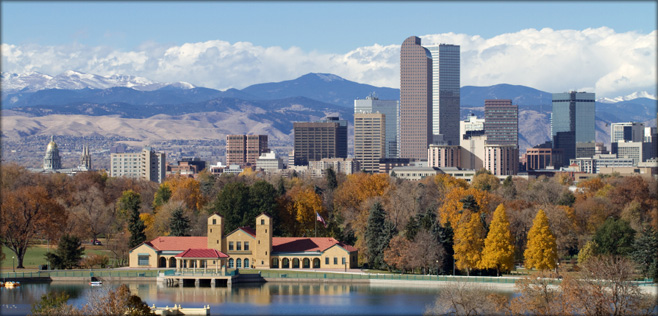Denver, Colorado Uber Accidents Attorneys
Table of Contents
TogglePeople have relied on taxi cabs to take them to and from specific destinations in the Denver area for many years. Some locations are not served by public transportation, but many other people call cabs because they might have had too much to drink or are unable to get home for other reasons.
Another option that became available to Colorado residents in September 2013 was ridesharing services such as Uber and Lyft. Legally referred to as transportation network companies (TNCs), these businesses allow regular people to provide rides with their personal vehicles through smartphone apps.
Whether it is a traditional taxi or a TNC vehicle, these drivers feel increased pressure to pick up passengers and take them to their destinations as quickly as possible. Many accidents in the Denver area are the result of unsafe driving by taxi or TNC drivers, causing passengers or others to sustain devastating injuries.
Denver Lawyer for Taxi Accidents
Were you injured in a motor vehicle crash caused by a negligent taxi or rideshare driver? Whether you were a passenger in or you were struck by such an automobile, it may be in your best interest to immediately seek legal representation.
Denver, Colorado Uber accident attorney Jennifer Donaldson has more than a quarter-century of experience helping people who were involved in accidents. Donaldson Law, LLC serves numerous communities in and around Denver County, including Boulder, Broomfield, Longmont, Lakewood, Arvada, Aurora, Thornton, Westminster, Centennial, and Littleton.
If you suffered injuries as a result of a collision involving a taxi or TNC, you may be able to seek compensation for your economic losses including, medical bills and lost wages, and for your non-economic losses. Call (303) 458-5000 right now to take advantage of a free, no-obligation consultation.
Taxi Companies in the Denver Area
Cab drivers may work long hours which can lead to fatigue or driving aggressively, recklessly, or in a negligent manner.
When a person has been injured or killed as a result of a taxi driver’s negligence, it is critical to take legal action as soon as possible. Cab companies may aggressively defend claims against them and often attempt to deny liability in these accidents.
Motor vehicle carriers of eight or fewer passengers are required by the Colorado Public Utilities Commission (PUC) under the Code of Colorado Regulations (CCR) 723-6 § 6007 to maintain at least $500,000 of motor vehicle liability insurance. However, these insurance requirements do not necessarily ensure that insurance companies will automatically pay personal injury claims or willfully and fairly compensate you for your injuries, damages, and losses.
Some of the most popular taxi providers in the Denver area include, but are not limited to:
- 303 Car Service LLC
- AAA Airport Denver Limo
- Airport Limousine Denver
- American Fleet, LLC
- Black Diamond
- Central Car Service
- Colorado Airport Transportation
- D & K Family Limousine
- Denver Airport Taxi
- Denver Super Ride Limo
- Executive Transportation Services Ltd.
- Freedom Cab
- iRide 24
- Maverick Car Service
- Metro Taxi
- Mile High Cab
- Mountain Star Transportation
- Mountains Taxi
- Pyramids Transportation
- SkyWay Car Sedan And Town Car Service
- Union Taxi
- Yellow Cab
Rideshare Accidents in Denver, Colorado
TNC drivers operate under different standards than traditional taxi drivers. For example, TNC drivers are prohibited from soliciting or accepting any traditional “street hail” passengers who did not arrange rides through digital application platforms under Senate Bill 14-125, which Governor John Hickenlooper signed into law on June 5, 2014.
The PUC also requires TNCs or drivers to maintain at least $1 million of primary liability insurance coverage. When TNC drivers are logged into their digital networks but are not transporting passengers (commonly referred to as a “gap period”), the PUC requires drivers to maintain a minimum coverage of $50,000 per person/$100,000 per accident/$30,000 property damage.
Similar to accidents involving traditional cabs, a rideshare company is extremely likely to deny its liability for any crash. In many cases, a TNC will claim that its driver was acting as an independent contractor.
TNC drivers may be more likely to be involved in a motor vehicle crash while distracted because their jobs are heavily reliant on their use of cell phone applications. Multitasking has generally been proven to make people do several things less effectively, and it is especially dangerous when one of the things involved in multitasking is driving a motor vehicle.
Resources for Rideshare Accidents in Colorado
Colorado Public Utilities Commission | Transportation Network Company Rules — The PUC established these rules effective February 4, 2015. Some of the subject areas addressed by rules include, but are not limited to safety, civil penalties, and insurance. You can also review Senate Bill 14-125, which provides certain exemptions for TNCs.
A Comparison of the Cell Phone Driver and the Drunk Driver — TNC drivers rely on their smartphones as part of their jobs. Noting that “epidemiological evidence suggests that the relative risk of being in a traffic accident while using a cell phone is similar to the hazard associated with driving with a blood-alcohol level at the legal limit,” this University of Utah study provided a direct comparison of the driving performance of a cell phone driver and a drunk driver in a controlled laboratory setting. It found that “the impairments associated with using a cell phone while driving can be as profound as those associated with driving while drunk.”
Call Our Denver County Uber Accident Attorneys at Donaldson Law, LLC for Your Free Consultation Today
If you suffered catastrophic injuries or your loved one was killed as the result of a cab or rideshare driver’s negligence, you should not delay in contacting legal counsel. Denver Car Accident Lawyer Jennifer Donaldson has received an AV® Preeminent™ Peer Review Rating from Martindale-Hubbell® and was also previously named Lawyer of the Year by the Colorado Trial Lawyers Association.
Donaldson Law, LLC represents clients throughout Denver County and many surrounding areas such as Jefferson County, Denver County, Boulder County, Arapahoe County, and Adams County. You can have our Denver personal injury attorney review your case by calling (303) 458-5000 today to schedule a completely free initial consultation.
We also offer the following practice areas at Donaldson Law LLC:
- Rear-End Impact Accidents
- Reckless Driver Accidents
- Parking Lot Accidents
- Underinsured / Uninsured Motorist Accidents
- Low Speed Impact Crash
- High Speed Impact Accident
- Passenger Injury Accidents
- Side Impact Collisions
- Winter Driving Collision Resource
- Distracted Driver Accidents
- Hit and Run Accidents Injury
- Teenage Driving Accident
- Underage DUI
Uber Accident FAQs
Who will pay for injuries sustained in an Uber accident?
It depends on when the accident occurred. If the Uber driver was not logged into the Uber app, his or her personal insurance coverage will be liable for the injuries that result from the crash. If the Uber driver was logged into the Uber app, but had yet to pick up a passenger, Uber may provide limited liability coverage for the collision’s expenses. If the Uber driver is actively carrying a passenger when the crash occurs, the injured passenger or other vehicle occupants he or she hits during the crash may pursue Uber’s insurance coverage for damages up to their policy limit of $1 million.
Can I sue Uber if I get hit by an Uber driver?
Uber passengers may be eligible to pursue Uber’s insurance coverage if they are injured during a ride.Likewise, other drivers or their vehicle’s occupants who are injured by an Uber driver who is actively working during the time of the crash may be eligible to pursue Uber’s insurance coverage for their financial recovery.
What happens if your Lyft driver gets in an accident?
A Lyft driver will be required to follow the same steps as a non-rideshare driver when an accident occurs. That means staying behind at the scene of the collision, contacting 911, and sharing his or her information with any injured parties. If he or she is found liable for the crash, Lyft may also share some liability based on the circumstances of the collision.It is best to talk with a skilled rideshare attorney in Denver to understand your legal rights, and to learn who can be held liable for the crash and its injuries.
What should I do if I was in an accident with a rideshare driver?
If you are physically capable, call the police to report the accident, and begin recording the other rideshare driver’s details, including his or her driver’s license, registration, and insurance coverage. Take photos of these documents whenever possible.If you can, try to determine whether the rideshare driver was actively working at the time of the crash. That means he or she was logged into the app, and physically responding to a rider’s request for pick-up, or carrying a rider to their destination.
Simply because a driver has a rideshare sticker or light on their vehicle does not mean he or she was working at the time of the crash. That will make a difference in whose insurance coverage may be pursued for your financial recovery.
Once the police arrive, be sure the responding officer fills out a formal police report documenting the details of the crash scene, who they perceive to be at fault, and any witness information.
If your injuries allow, take pictures of both (or all) vehicles involved in the crash, the crash scene itself, including any skid marks or traffic flow patterns.
Seek medical care right away and follow all physician’s instructions. Do not give a recorded statement to the insurance company while you are hurt. Contact a skilled rideshare accident attorney in Colorado first to ensure your rights are protected.


















